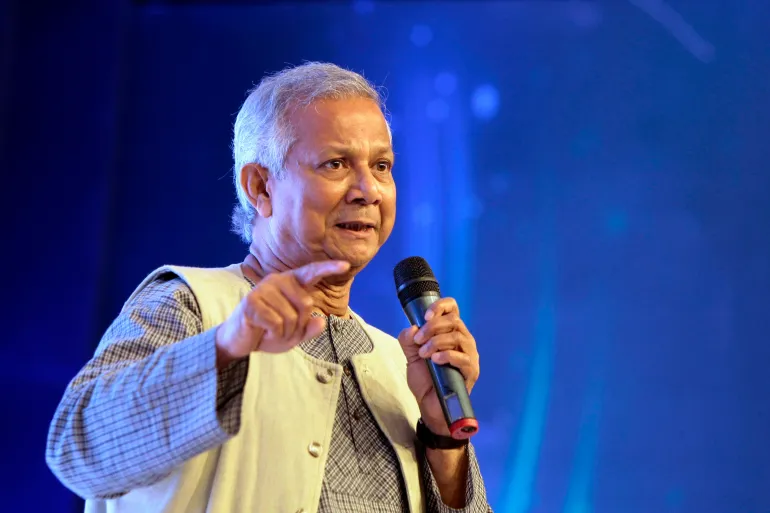After weeks of conspicuous silence, Bangladesh on Saturday finally broke its diplomatic reserve in the wake of the horrific Pahalgam massacre and India’s retaliatory response—‘Operation Sindoor’, a coordinated missile strike that dismantled nine terrorist infrastructure sites across Pakistan and Pakistan-occupied Kashmir.
In a carefully worded social media statement, Muhammad Yunus, Chief Advisor to Bangladesh’s interim government, commended Indian Prime Minister Narendra Modi and extended appreciation to US President Donald Trump and Secretary of State Marco Rubio for their instrumental role in mediating the ceasefire.
What did Yunus say?
“I most sincerely commend Prime Minister Shri Narendra Modi of India and Prime Minister Shehbaz Sharif of Pakistan for agreeing to a ceasefire with immediate effect and to engage in talks. I would also like to express my deep appreciation to President Trump and Secretary of State Rubio for their effective mediation. Bangladesh will continue to support our two neighbours to resolve differences through diplomacy,” Yunus posted on X.
Dhaka’s prior silence—especially in the aftermath of a terrorist atrocity that claimed 26 innocent lives and prompted India’s forceful reprisal—had become the subject of intense diplomatic and media scrutiny. Observers interpreted this calculated silence as a strategic attempt to avoid antagonising Pakistan, a country with which Bangladesh has been warming ties in the aftermath of Prime Minister Sheikh Hasina’s ouster.
While world powers including the United States, China, and key European capitals issued strong appeals for de-escalation, and Islamabad rattled with veiled threats of retaliation, Bangladesh’s absence from the global diplomatic discourse stood out starkly. The studied neutrality raised eyebrows, especially given Bangladesh’s historical stance against terrorism.
Yunus’s statement more a gesture of diplomatic relief?
Foreign policy analysts argue that Yunus’s belated statement was more a gesture of diplomatic relief than a firm stand for justice. By focusing on the ceasefire rather than explicitly condemning the massacre or supporting India’s counterterrorism operation, Dhaka appeared to many as bending towards appeasement of Islamabad rather than aligning with regional efforts to combat terrorism.
In contrast, other South Asian nations responded with greater urgency and clarity. Sri Lanka and the Maldives voiced deep concern over the emerging threat to regional peace, while Nepal struck a neutral but timely tone, urging both sides to exercise restraint and open dialogue. Dhaka’s evasive posture, meanwhile, was widely perceived as an attempt to walk a fine line—avoiding open endorsement of India’s actions without straining ties with Pakistan.
What perplexed many was the uncharacteristic restraint of Yunus himself. As a Nobel Peace Prize laureate renowned for his humanitarian advocacy, his reluctance to directly denounce a terror strike or acknowledge India’s military response stood in stark contrast to his global image. This silence, many argue, was not incidental but tactically engineered.
Why was Yunus silent?
Political commentators within Bangladesh believe the interim government’s stance is deeply rooted in domestic political realities. With anti-India rhetoric often wielded by factions within Jamaat-e-Islami and the Bangladesh Nationalist Party (BNP), overt alignment with India could prove politically combustible. In such a fragile political ecosystem, Yunus’s carefully measured silence was likely an attempt to maintain internal stability—even at the cost of drawing international criticism.
In the end, Dhaka’s hesitant diplomacy underscores the complex interplay of geopolitics and domestic compulsions—a balancing act between regional loyalties, international expectations, and internal vulnerabilities.


